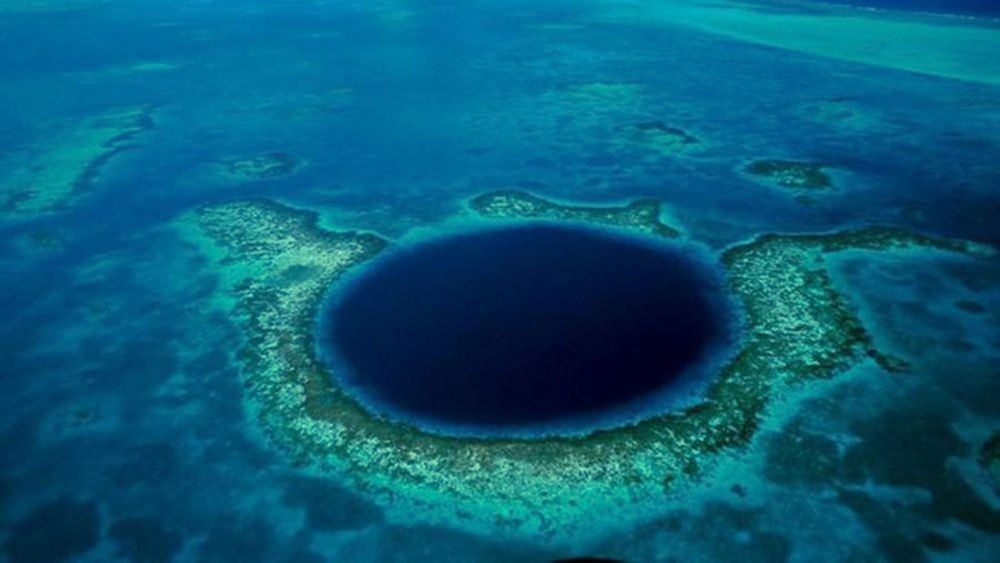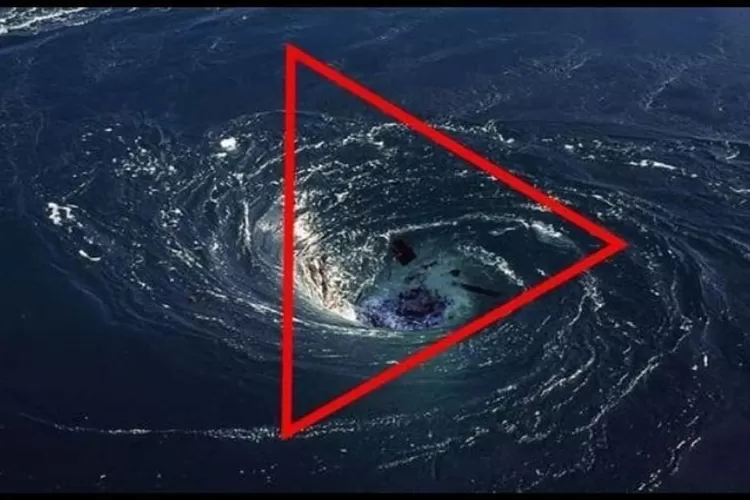The world’s oceans cover over 70% of the Earth’s surface, yet much of their vast expanse remains unexplored and shrouded in mystery. From the hidden depths of the abyss to the enigmatic creatures that inhabit its waters, the ocean continues to intrigue and fascinate scientists, explorers, and adventurers alike. Let’s delve into the mysteries of the ocean and uncover some of its secrets:

Unraveling the Mysteries of the Oceans: Exploring Earth’s Enigmatic Depths
1. The Deep-Sea Abyss:
Beneath the sunlit surface lies the deep-sea abyss, a realm of darkness and extreme pressure that is home to some of the most mysterious creatures on Earth. Despite advances in technology, much of the deep ocean remains unexplored, leaving scientists to speculate about the strange and otherworldly creatures that may lurk in its depths.
2. Lost Cities and Underwater Ruins oceans:
Throughout history, stories have circulated about lost cities and ancient civilizations that lie buried beneath the ocean’s waves. While some of these tales may be the stuff of legend, archaeologists have discovered evidence of human settlements submerged underwater, offering tantalizing clues to our past.
3. Marine Life Mysteries:
The ocean is teeming with a dazzling array of life forms, from microscopic plankton to massive whales. Yet, there are still many mysteries surrounding marine life, including the behavior of deep-sea creatures, the origins of bioluminescence, and the elusive habits of elusive species such as the giant squid wdbos.
4. The Bermuda Triangle:
The Bermuda Triangle, also known as the Devil’s Triangle, has long been a source of fascination and speculation due to its reputation for unexplained disappearances of ships and aircraft. While scientists have offered various theories to explain the phenomena, including methane gas eruptions and magnetic anomalies, the mystery of the Bermuda Triangle remains unsolved.
5. Oceanic Phenomena:
The ocean is home to a myriad of natural phenomena that continue to puzzle scientists and researchers. From mysterious underwater currents and whirlpools to glowing “oceanic fireballs” and strange underwater sounds, the ocean is full of surprises waiting to be discovered.
6. Underwater Volcanoes and Hydrothermal Vents:
Beneath the ocean’s surface, a hidden world of volcanic activity and hydrothermal vents exists. These underwater phenomena support unique ecosystems that thrive in extreme conditions, yet their precise mechanisms and interactions with marine life remain a mystery.
7. Oceanic Ghost Ships oceans:
The ocean is littered with tales of ghost ships and haunted vessels that have disappeared without a trace. From the legendary Mary Celeste to the mysterious disappearance of the USS Cyclops, these maritime mysteries continue to capture the imagination of sailors and storytellers alike.
8. The Search for Atlantis:
The myth of Atlantis, a lost civilization said to have sunk beneath the waves, has captured the imagination of explorers and historians for centuries. While many theories have been proposed about the possible location of Atlantis, its existence remains one of the greatest mysteries of the ocean.
9. Alien Encounters oceans:
In recent years, reports of unidentified submerged objects (USOs) and underwater UFO sightings have sparked speculation about the presence of extraterrestrial life in the ocean. While most of these sightings can be attributed to natural phenomena or misidentifications, the idea of alien encounters beneath the waves continues to intrigue conspiracy theorists and UFO enthusiasts.
10. The Ocean’s Role in Climate Change:
As scientists continue to study the ocean’s role in regulating Earth’s climate, new mysteries and challenges emerge. From the impact of ocean acidification on marine ecosystems to the role of ocean currents in driving weather patterns, understanding the complex interactions between the ocean and the atmosphere remains an ongoing scientific endeavor.
In conclusion, the ocean is a vast and mysterious realm that continues to captivate our imagination and inspire exploration. As we strive to unlock its secrets, the mysteries of the ocean remind us of the boundless wonders of the natural world and the importance of preserving and protecting Earth’s fragile marine ecosystems.

The Elusive Nature of Unraveling oceans Mysteries: Why Accessing Information from the Deep Seas is Challenging
The ocean, covering more than 70% of the Earth’s surface, holds a plethora of mysteries waiting to be unveiled. However, accessing information about these enigmatic realms proves to be a daunting task. Let’s delve into the reasons behind the difficulty of obtaining information about ocean mysteries:
1. Unfathomable Depths oceans:
The ocean’s vastness extends to its depths, with much of its mysteries lying in the dark abyss beyond human reach.
2. Technological Limitations:
Exploring the ocean’s depths requires specialized equipment and technology capable of withstanding harsh conditions.
3. Cost and Resources:
Conducting oceanographic research and exploration missions is costly and resource-intensive.
4. Remote and Inaccessible Locations:
Many of the ocean’s mysteries are located in remote and inaccessible locations, such as deep-sea trenches, underwater volcanoes, and polar regions. These areas pose logistical challenges for researchers, including transportation, accommodation, and supply chain management, making it difficult to conduct sustained scientific investigations.
5. Extreme Environments oceans:
The ocean’s extreme environments, characterized by high pressure, low temperatures, and darkness, present formidable obstacles to exploration and data collection. Organisms that inhabit these environments have evolved unique adaptations to survive, making them difficult to study and understand.
6. Limited Observational Tools:
Traditional methods of ocean exploration, such as ship-based surveys and underwater cameras, have limitations in their ability to capture detailed and comprehensive data about ocean phenomena. Remote sensing technologies, such as satellites and buoys, provide valuable information about surface conditions but are less effective at probing the ocean’s depths.
7. Environmental Hazards:
Exploring the ocean’s depths entails inherent risks, including equipment failure, extreme weather conditions, and encounters with hazardous marine life. These environmental hazards can compromise the safety of researchers and equipment, leading to delays and setbacks in data collection efforts.
8. Lack of Public Awareness:
Despite the ocean’s immense importance to the planet’s health and biodiversity, public awareness of ocean mysteries and exploration efforts remains limited. The remote and inaccessible nature of the ocean’s depths makes it challenging to convey the significance of ocean exploration and the need for conservation efforts to the general public.
/vidio-web-prod-video/uploads/video/image/1511167/vidio-5-suara-misterius-yang-terekam-dari-dasar-laut-1-cc30e5.jpg)
Navigating the Limits of Human Knowledge: Understanding the Constraints of Oceanic Information
The ocean, covering more than two-thirds of the Earth’s surface, remains one of the least explored and understood frontiers on our planet. Despite its vastness and importance to Earth’s ecosystems and climate systems, our knowledge of the ocean is limited by a multitude of factors. Let’s explore the constraints that hinder our understanding of the ocean:
1. Unfathomable Depths:
The ocean’s depths extend to staggering depths, with the average depth of the world’s oceans exceeding 12,000 feet (3,700 meters). Much of this vast expanse remains unexplored and inaccessible to human observation due to the extreme pressures and darkness found at these depths oceans.
2. Technological Limitations:
Exploring the ocean’s depths requires specialized equipment and technology capable of withstanding the harsh conditions found in the deep sea oceans.
3. Cost and Resources:
Conducting oceanographic research and exploration missions is costly and resource-intensive. Funding limitations and competing priorities often restrict the scope and duration of ocean expeditions, limiting the amount of data that can be collected and analyzed oceans.
4. Remote and Inaccessible Locations:
Many of the ocean’s mysteries are located in remote and inaccessible locations, such as deep-sea trenches, underwater volcanoes, and polar regions. These areas pose logistical challenges for researchers, including transportation, accommodation, and supply chain management, making it difficult to conduct sustained scientific investigations oceans.
5. Extreme Environments:
The ocean’s extreme environments, characterized by high pressure, low temperatures, and darkness, present formidable obstacles to exploration and data collection. Organisms that inhabit these environments have evolved unique adaptations to survive, making them difficult to study and understand oceans.
6. Limited Observational Tools:
Traditional methods of ocean exploration, such as ship-based surveys and underwater cameras oceans.
Have limitations in their ability to capture detailed and comprehensive data about ocean phenomena. Remote sensing technologies.
Such as satellites and buoys, provide valuable information about surface conditions but are less effective at probing the ocean’s depths.
7. Environmental Hazards:
Exploring the ocean’s depths entails inherent risks, including equipment failure, extreme weather conditions, and encounters with hazardous marine life. These environmental hazards can compromise the safety of researchers and equipment, leading to delays and setbacks in data collection efforts.
8. Lack of Public Awareness:
Despite the ocean’s immense importance to the planet’s health and biodiversity, public awareness of ocean mysteries and exploration.
The remote and inaccessible nature of the ocean’s depths makes it challenging to convey the significance of ocean exploration oceans.
In conclusion, unraveling the mysteries of the ocean presents numerous challenges.
From technological limitations and cost constraints to remote and inaccessible location oceans.
Despite these obstacles, scientists and explorers continue to push the boundaries of ocean exploration.
As advancements in technology and research methodologies continue to evolve, our understanding of the ocean.
Read More Article About “Senator Linda White: A Political Journey of Advocacy and Leadership“



